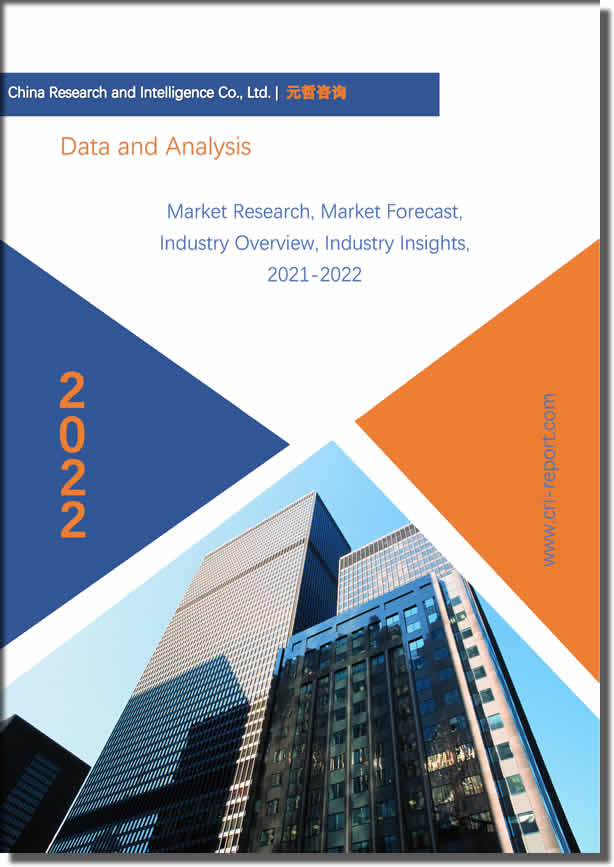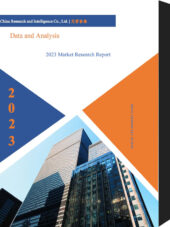Description
Peristaltic Pumps Market
Product Overview
Peristaltic pumps, which are used for pumping different types of fluids, are generally known as roller pumps. The flexible tubes that are mounted within a circular pump casing move through these fluids. Peristaltic pumps can operate continuously or can be indexed to pump smaller amounts of fluids in partial revolutions. The liquid is handled by an elastic tube or hose attached to a circular pump inside it.
The rotor inside the pump is connected to the outer boundary of the rotor with shoes, rollers, wipers, and lobes, reducing flexible tubes or hoses. The fraction of the tube in compression can be pinched closed as the rotor rotates, which causes the liquid to migrate around the tube. In addition to this, the liquid flow towards the pump may be triggered when the tube opens to its normal state. Peristaltic pumps offer features such as seal-less construction, low cost of safety, self-priming & dry running, gentle pushing, high suction, scratch resistance, good handling, etc.
Market Highlights
Peristaltic Pumps Market is expected to project a notable CAGR of 6.5% in 2030.
Peristaltic Pumps Market to surpass USD 2.03 billion by 2030 from USD 1.02 billion in 2018 at a CAGR of 6.5% throughout the forecast period, i.e., 2019-30. Due to growing awareness of maintenance cost savings and operational performance, the global demand for peristaltic pumps is expected to expand significantly in the next few years. The growing demand for peristaltic pumps in the worldwide pharmaceutical industry is expected to drive the growth of this market across the globe. Additionally, the rising use of water and waste water disposal is also another driving factor in the demand for peristaltic pumps.
Peristaltic Pumps Market: Segments
Peristaltic tube pumps segment to grow with the highest CAGR during 2019-30
Peristaltic Pumps Market is segmented by type as tube pumps and hose pumps. The greater market share in 2018 was accounted for by Tube pumps are expected to lead the global peristaltic pumps market in the future, as they are widely used to pump fluids containing suspensions of abrasive solids and corrosive liquids. For chemical injection and dosing applications, such pumps are widely used. Low-pressure pumps, which usually have dry casings and non-reinforced casings and use rollers to provide compressive power, are often called peristaltic tube pumps. Tubing can be chosen based on its chemical compatibility, strain, temperature, tube size, gas permeability, life expectancy, transparency, and tube cost, depending on the applications. The flow rate of the pumps is dictated by the tubing size, and the peristaltic tube pumps are powered by the growing pharmaceutical & medical industry.
Pharmaceutical Segment to grow with the highest CAGR during 2019-30
Peristaltic Pumps Market is segmented by End-User into Pharmaceuticals, Water & Wastewater Treatment, Mining, Food & Beverages, Chemical Processing, and Pulp & Paper. The pharmaceuticals end-user industry is expected to hold the largest market share as Pumps are involved in the manufacturing of botanical medicines and herbs and in increasing the use of pellets and table coatings. The pharmaceutical and medical industry’s megatrends have now given organizations access to real-time data that will enable them to take strategic decisions on product management, supply chain management, and operational process improvement. The growing acceptance of smart surgery would increase the surgery success rate and the number of procedures. The higher number of operations would increase the demand for different medical devices in which peristaltic pumps are used.
Peristaltic Pumps Market: Market Dynamics
Drivers
Rising need for water & wastewater treatment
The major problem faced by many nations globally is ensuring a sufficient supply of drinking water. With the levels of groundwater decreasing, contaminants and industrial effluents are contaminating the usable supplies. For municipal, agricultural, residential, commercial, and other process applications, peristaltic pumps are an integral part of water treatment systems. The conventional wastewater treatment process, such as filtration, is being replaced with systems incorporating flow meter peristalsis and modern automated control and monitoring systems. To optimize the performance of conditioned water, these new systems allow accurate chemical dosages. A few factors that are aggravating water scarcity around the globe are rising freshwater demands, dwindling supplies, increasing population, and growth in the industrial sector. Growing investments in this sector are expected to drive the demand for peristaltic pumps.
Growing demand for pharmaceutical products
The growing demand for peristaltic pumps in the worldwide pharmaceutical industry is expected to drive the growth of this market across the globe. Peristaltic pumps are commonly used to produce biological and medical products, pharmaceutical products, and isolate active medicinal principles in the production of botanical drugs and herbs.
Restrain
Maintenance Costs as required regular replacement of Hose or tubes
While peristaltic pumps provide low maintenance, after handling corrosive or reactive fluids, hoses and tubes are exposed to regular replacement. The replacements are inexpensive, but repeated replacements lead to the process stopping and can lead to fluid contamination. Furthermore, running the pumps above their design pressure will result in the tube or hose being ruptured. Depending on its operating range and building material (MoC), the cost of a peristaltic pump depends. The cost of peristaltic pumps is also rising as the cost of raw materials is higher. Most of the peristaltic pumps are custom-made, fulfilling the end-use sector’s needs.
Peristaltic Pumps Market: Key Players
Cole-Parmer Instrument Company LLC
Company Overview
Business Strategy
Key Product Offerings
Financial Performance
Key Performance Indicators
Risk Analysis
Recent Development
Regional Presence
SWOT Analysis
Flowrox, Gilson Inc.
Graco Inc.
IDEX Corporation
Prominent Dosiertechnik GmbH
Randolph Austin
Verder Group
Wanner Engineering
Watson-Marlow Fluid Technology Group
Peristaltic Pumps Market: Regions
Peristaltic Pumps Market is segmented based on regional analysis into five major regions. These include North America, Latin America, Europe, APAC, and MENA.
Peristaltic Pumps Market in Asia Pacific held the largest market share of XX.X% in the year 2018 and it is expected to continue its market dominance in the future as well. This regional market growth is expected to drive increasing demand for peristaltic pumps in various end-user industries such as pharmaceutical, water, and wastewater treatment and chemical processing.
Due to the booming pharmaceutical and food and beverage industries in these areas, Europe and North America are projected to expand substantially over the forecast period. There is a high demand for peristaltic pumps in the major APAC markets, such as China, India, Japan, and South Korea. Because of the increasing production and other end-use industries in the region, APAC is projected to be the fastest-growing market for peristaltic pumps. This area is being targeted by global manufacturers of peristaltic pumps as it has the fastest-growing industrial sector with emerging markets such as Indonesia and Malaysia.
Competitive Landscape:
The Peristaltic Pumps market, which is highly competitive, consists of several major players such as Watson-Marlow Fluid Technology Group (WMFTG) (US), Verder Group (Netherlands) hold a substantial market share in the Peristaltic Pumps market. Other players analyzed in this report are Cole-Parmer Instrument Company LLC (US), ProMinent Group (Germany), Graco Inc. (US), Flowrox (Finland), IDEX Corporation (US), Randolph Austin (US), Heidolph Instruments (Germany), and Wanner Engineering (US) among others.
The market competition has been stepped up by the availability of many players offering Peristaltic Pumps. In July 2020, Watson-Marlow Fluid Technology Group (WMFTG) has established a new production facility of 16,200 m2 at Aflex, Yorkshire, through the investment of USD 25.3 million.
Peristaltic Pumps Market is further segmented by region into:
North America Market Size, Share, Trends, Opportunities, Y-o-Y Growth, CAGR – United States and Canada
Latin America Market Size, Share, Trends, Opportunities, Y-o-Y Growth, CAGR – Mexico, Argentina, Brazil, and Rest of Latin America
Europe Market Size, Share, Trends, Opportunities, Y-o-Y Growth, CAGR – United Kingdom, France, Germany, Italy, Spain, Belgium, Hungary, Luxembourg, Netherlands, Poland, NORDIC, Russia, Turkey, and Rest of Europe
APAC Market Size, Share, Trends, Opportunities, Y-o-Y Growth, CAGR – India, China, South Korea, Japan, Malaysia, Indonesia, New Zealand, Australia, and Rest of APAC
MENA Market Size, Share, Trends, Opportunities, Y-o-Y Growth, CAGR – North Africa, Israel, GCC, South Africa, and Rest of MENA
Peristaltic Pumps Market report also contains analysis on:
Peristaltic Pumps Market Segments:
By Type:
Peristaltic Tube Pumps
Vinyl Tubing
Silicone Tubing
Fluoropolymer Tubing
Peristaltic Hose Pumps
Ethylene Propylene Diene Monomer Rubber (EPDM)
Natural Rubber (NR)
Nitrile Buna Rubber (NBR)
Chlorosulfonated Polyethylene (CSPE)
By End-Use:
Pharmaceuticals
Water & Wastewater Treatment
Mining
Food & Beverages
Chemical Processing
Pulp & Paper
Others
Peristaltic Pumps Market Dynamics
Peristaltic Pumps Market Size
Supply & Demand
Current Trends/Issues/Challenges
Competition & Companies Involved in the Market
Value Chain of the Market
Market Drivers and Restraints



